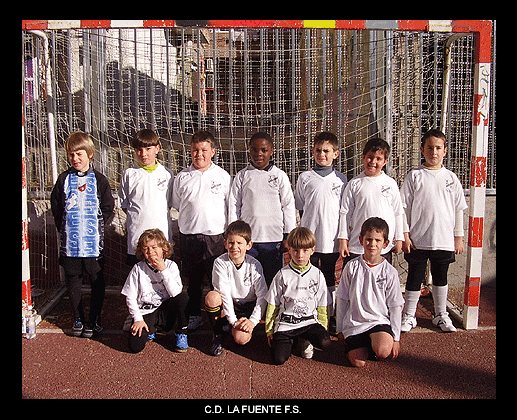 …Saddest day: I was removed as Akwa Ibom State Director over ‘flimsy, unsubstantiated allegations’
…Saddest day: I was removed as Akwa Ibom State Director over ‘flimsy, unsubstantiated allegations’
…‘Why, contrary to the norm as secret police officer, I speak to the media’
By Johnbosco Agbakwuru
Mike Ejiofor, a retired Director with the Department of State Service, is a lawyer. In this interview, Ejiofor explains why, contrary to the norm as DSS officer, he speaks to the media. He also speaks on his saddest days in service and how he was kidnapped by herdsmen and ransom paid for his release. Excerpts:
As a retired security officer, you come out in the media to comment on national issues and even taking hard positions. What informed this?
I am driven by patriotism. It is very rare as you rightly pointed out. Retired DSS officers don’t come to the public to talk. I don’t want to go into details of my experience in service but let me highlight my experience. I was a State Director in eight states, interacting with governors and when you see these people offered constructive advice, it becomes a problem and I am not a politician. I say things the way they are.
Any governor who means well should be able to take advice in terms of policy formation and implementation from the State Security Service. Most times you see people blaming the SSS for failure to provide intelligence for other security agencies. In each of the states I worked, I had cordial relationship with the Commissioner of Police and other agencies.
But again, because the SSS does not come out to the public to tell them “this is what we do, or this is what we have done in terms of maintenance of internal security”, the blame always goes to them. And I said when I was leaving the service that there was no way I would fold my hands even though I was not mandated by the service. First of all, my aim, apart from my patriotism, is to educate Nigerians on the functions and responsibility of the State Security Service and the responsibility of the citizens to the service in terms of intelligence gathering. So, basically, those were the things that motivated me and I have seen too that many people appreciate what I am doing.
Some people ask why an SSS official should come out to talk in the public as if he is not part of the society. But I find it difficult to reconcile that as an SSS person but that is the policy of the service, they don’t come out in the open to tell people what they are doing. I can tell you that if the SSS comes out to tell you the number of attempts to destabilize government that have been foiled, that will create fear in members of the public. But at the peripheral level and the enlightenment level, those of us who are retired can talk to the public.
Youth days
I am a product of the media. Right from my youth days in the 80s, I interacted with journalists and there is no information I will look for that I can’t get through the media. So, I am part and parcel of them. As State Director, the first person I looked for on assumption of duty is the State Chairman of the Nigerian Union of Journalists, NUJ, and I always host him in my office, tell him that my responsibilities are his own responsibilities. There was certain information I always shared with journalists but they couldn’t publish. I am more or less a product of the media and that is why I continue to relate with the media even outside the service.
Can you highlight some of the hiccups you had while in service?
I enjoyed service. I am lucky and God has always been on my side because I am an absolute believer in the will of God. I joined the police in 1975 as a constable against my father’s position that police is for drop-out. And I told him it was a question of service and that when I join the police I was not going to wear uniform. Luckily for me, the month I was leaving the police training school, a special branch came for recruitment and we were taken, the branch formed the nucleus of the Nigeria Security Organization, NSO, following the assassination of then Head of State, Murtala Mohammed. I had an excellent career rising to a State Director in seven states in addition to other command positions.
Most of my friends were not that lucky. I had two regrets but because of my ardent belief in God, I wouldn’t call them regrets because they were ordained by God. I was left on a rank for nine years for no reason and I never complained. I was thanking God. I said supposing I was sent somewhere I would meet my death? The most important thing I asked God for is life and this month I am 67 years. God has been faithful. The other regret is that nobody appreciates what the SSS does especially there is a mistake. It is like football.
Nigerians like football. When we are winning, nobody complains but when we lose, they will call for the head of the coach and those of the players. You can’t continue to win always. Life is about give and take. So the SSS also needs the support of the people to succeed, they are not magicians, they are Nigerians.
Some people say that in other climes, security officers are for the masses, but it appears that in Nigeria security officers are only interested in protecting political office holders and not the masses. Is that how it should be?
That is not how it should be. What we have most of the time now is regime protection instead of national interest. The fact is that we have not been able as Nigerians to different between national interest and personal interest. For instance, nobody challenges a President in Nigeria but look at what happened in America after their presidential election. Judges told Trump “you cannot prove your case”. Can you give such judgment in Nigeria? It is because America has strong institutions. Nobody in Nigeria challenges anybody in government. There is uproar everywhere now following the IGP’s directives that policemen attached to unauthorized people should be withdrawn. They are taking security seriously now.
SSS is supposed to be undercover police, but these days you see them bragging that they are security operatives. Is this a new norm in the service?
SSS is an undercover intelligence gathering agency. But everyone has his own approach to issues. There was this Director-General, Mr. Gazama, that I respect so much followed by Mr. (Ekponyong) Ita who established the Rapid Response Squad. If there is an emerging problem, you can just go ahead and tackle it in collaboration with the police and other security agencies.
There is this lack of trust, inter agency rivalry among the services, although that is being gradually tacked now, relationships among the agencies are getting better. Even in developed countries, there is rivalry but I expect that the rivalry should be a healthy rivalry and not a situation one agency tries to blackmail another.
READ ALSO: U.S. Elections: Rep wants Nigeria to emulate U.S. by strong institutions
But I can tell you that if we have four strong institutions in the country like the SSS, our problems will be half solved. I am not saying there are no bad elements in the service. An average SSS man is guided by accountability; you cannot see a serious SSS officer getting involved in politics because they don’t have the money. An average SSS man fears money.
If you put money in the custody of an SSS officer, he must give account, that’s why they are not involved in politics because they cannot be involved in blind looting of our treasury. Like some people they just loot and ask what you are going to do with the money, the next thing you will go and contest governorship election. If any SSS man gets the kind of money politicians get, he will use it to benefit majority of the people.
Security agents in Nigeria are very hostile unlike developed countries where they treat people with courtesy. Is it because of our security agents’ orientation?
It is the orientation. I earlier told you that what we have is regime protection. But that is not also to say that we don’t have details providing security for our political leaders, it is just that they are not as visible as our people. You cannot see them as you see our SSS operatives clustering. But because of our own peculiar situation, people are hungry, there is the tendency by people to cluster around the governor, it is our culture. I will give you an example. When I was in Zamfara State as Director, I was scared the way the governor was stopping and talking to Okada riders and they will block the road. I told Governor Yerima it was not safe and he would tell me, “please leave them, they are my people”. He bought the motorcycles for them.
What is responsible for the rivalry amongst security agencies?
Like I said before, two of them are blackmail and politics, one agency trying to take credit for doing what it is not supposed to do. The police will be doing the work of the SSS, the SSS will be doing the work of the police, the police will be doing the work of the army; army will be doing the work of the police, all to please the political master.
So, basically, the reason for the agency rivalry is politics. I acknowledge that the functions of the various agencies are interwoven, sometimes not clearly defined. Like the omnibus clause in the State Security Service, one of the instruments establishing the SSS is that you can be given any other assignment by Mr. President, so if Mr. President tells you to go and do something, will you say you will not do it? However, we need to build strong institutions. For instance, once we get our electoral process right, we will have fewer problems because leaders will now emerge from a credible, reliable process. Even our judicial process is not reliable. I am sorry to say this because I am a lawyer but you can see that people now buy judgments.
If you sit down face to face with the Director-General of the SSS, what advice will you give him to strengthen the service?
I know him, he is my friend, but I will tell him to be professional, resist the temptation of pandering to political whims and caprices, look for the welfare of the operatives and get the service well equipped in line with the emerging security challenges.
When you were in service, what was your saddest moment?
I won’t call it sad because of my belief in God. My saddest day was the day I was removed from Akwa Ibom as State Director on flimsy and unsubstantiated allegations. Another sad day in my life was the day I was kidnapped but to the glory of God I was rescued.
Can you share your kidnap story?
I had left the service about three, four years earlier. I went to my village in Delta. On my way back with my driver, that is why I tell people to always take security precautions, we ran into herdsmen, kidnappers and they opened fire. I told my driver to stop because he who fights and runs away leaves to fight another day. We were taken into the bush for four days. We were there, they cooked food, my driver was eating the food but I couldn’t eat. I lived on cashew fruits for four days before my release was negotiated.
How much did you pay as ransom?
Well, before I was taken by the kidnappers, I used to tell people not to pay ransom because when you pay ransom, you encourage kidnappers but until I went in there and came out I now knew that you must pay ransom. I paid ransom but I won’t tell you how much.
Vanguard News Nigeria
The post EX-DSS DIRECTOR, EJIOFOR: I spent four days in kidnappers’ den without food appeared first on Vanguard News.

















![[Music] Brisco Ft Meddy _ On God](https://1.bp.blogspot.com/-rjroVTQC4fc/Xqqrc7SrVNI/AAAAAAAABoQ/O9lNUBxpG3ErBDFxTXyyiNC6gEhblQ6lACLcBGAsYHQ/w680/brisco%2Bft%2Bmeddy%2BFINAL.jpg)





0 Comments
Advertise your business here at cheap rate and get large audience to your market. Call/Msg Teemikemedia: 07060733664 to get started.